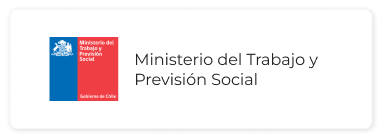With the implementation of this project, a complex tool is established where projects are entered each year, monitored, and where various national and regional public institutions are involved.
It is a system in which National Ministries, Regional Governments, and Public Enterprises all participate. All initiatives that request funding and are subject to socio-economic studies and evaluation are entered into the BIIP.
Project Brief
- Project Name: Integrated Public Investment Bank.
- Sponsor: Ministry of Social Development and Family, Government of Chile.
- Start: 9/6/2023 (the new version).
- Users: Formulating Institutions, Financial Institutions, National/Regional MDSF Analysts, Authorities, Seremis, and Auditing Institutions.
- Users: Approximately 60,000 users.

The objective of this project is to have an integrated support tool for the National Investment System. The BIIP features open data on public investment, where information on investment initiatives from the four component subsystems is recorded and managed:
- Ex Ante Evaluation (Eligibility and Technical-Economic Analysis),
- Budget Formulation,
- Budget Execution / Ex Post Evaluation
- Ex-Post Evaluation.
Artificial Intelligence in the service of public management.
Integrating an Artificial Intelligence module in the creation of public investment initiatives allows formulators to develop more detailed projects tailored to the needs of the target sector. AI facilitates proper formulation, optimizing the efficiency and impact of the investment.
It is essential for the implementation that the tool meets the current standards of the entity, including: security, timeliness, transparency, and traceability, serving as the most important technical support in investment decision-making, monitoring, and evaluation.
An agile software development methodology will be applied, prioritizing collaboration and continuous adaptation. A thorough analysis of the database will be conducted, allowing for a robust design that preserves the integrity of historical data.
The benefits of digitizing the state:
- Centralized and Efficient Access: Users will be able to access a centralized platform that integrates and organizes all information related to public investment initiatives. This will facilitate efficient data search, consultation, and management.
- Improved Decision-Making: With access to detailed and up-to-date information on investment initiatives, users will be able to make more informed and strategic decisions regarding resource allocation and project execution.
- Greater Transparency and Control: The platform will enhance transparency in the public investment process by enabling clear tracking of initiatives from conception through implementation and evaluation. This will provide greater control over public funds and accountability.
- Resource Optimization: By having a comprehensive view of all investment initiatives, users will be able to identify opportunities to optimize resource use and avoid duplications or overlaps in projects.
- Ease of Collaboration and Communication: The platform will facilitate better collaboration among institutions involved in investment initiatives. Users will be able to share information more effectively and communicate more efficiently.
- Security and Confidentiality: The BIIP will implement robust security measures to protect sensitive information and ensure data confidentiality.
- Process Automation: With features such as automatic notifications, report generation, and standardized evaluation processes, the BIIP will help automate and streamline many processes related to public investment.
- Ease of Reporting and Analysis: Users will be able to easily generate detailed reports and analyses on investment initiatives, facilitating the presentation of reports to stakeholders and the assessment of project impacts.
- Interoperability with Other Systems: Integration with other systems and external services will allow for greater efficiency in data exchange and collaboration with other government entities.




















